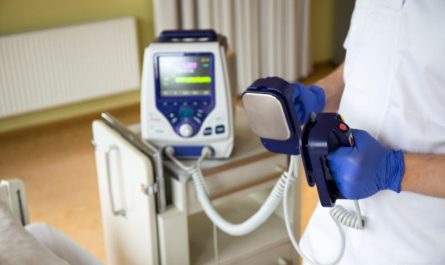The global Allergy Treatment Market is estimated to be valued at US$ 20007.78 Million in 2023 and is expected to exhibit a CAGR of 6.4% over the forecast period 2023 to 2030, as highlighted in a new report published by Coherent Market Insights.
Market Overview:
Allergy treatment products provide effective relief from symptoms associated with various allergies. These products help manage seasonal allergies, food allergies, asthma and other respiratory allergies. They improve quality of life for millions suffering from allergies worldwide.
Market key trends:
Technological advancements are driving innovation in allergy treatment products. For instance, sublingual and subcutaneous immunotherapy uses allergen extracts in small doses to induce tolerance in the body’s immune system over time. This offers long-term treatment benefits with minimal side effects. Newer formulations such as tablets and drops are more convenient modes of delivery. Growing awareness about allergic conditions and their management is fueling demand for allergy medicines and therapies across various regions. Rising healthcare expenditure in developing nations expands access to care.
SWOT Analysis
Strength: The allergy treatment market has a large customer base as allergies are very common. There have been significant advances in immunotherapy and drug therapy that have improved treatment outcomes.
Weakness: Allergy treatment options can be very expensive, putting them out of reach for some patients. Not all treatment types work uniformly for different patients. Some side effects may occur with immunotherapy and drugs.
Opportunity: Growing pollution levels and changes in lifestyles/diets are increasing allergies globally, opening opportunities for the market. Developing regions like Asia Pacific provide scope for market expansion.
Threats: Strict regulations for approval of new therapies increases costs and complexities. Patent expiries of blockbuster drugs result in lower revenues for companies. Alternative treatment options like ayurveda could gain traction.
Key Takeaways
The global allergy treatment market size is expected to reach US$ 30057.34 Mn by 2030 from US$ 20007.78 Mn in 2023, expanding at a CAGR of 6.4% during the forecast period. The increasing prevalence of allergic diseases and rising disposable income is expected to drive the market over the next few years.
Regional analysis: North America is expected to hold the largest share in the global allergy treatment market during the forecast period. This is attributed to the growing patient population, presence of advanced healthcare infrastructure, and favorable reimbursement policies in the region. Asia Pacific is anticipated to exhibit the fastest growth rate, with China, India, and Japan being major markets. The increasing environmental pollution levels coupled with changing lifestyle is fueling allergy cases across APAC.
Key players:
The major players operating in the allergy treatment market include Stallergenes Greer PLC, Sanofi SA, Novartis International AG, Dermapharm Holding SE, Leti Pharma, Johnson & Johnson, GlaxoSmithKline PLC, Nicox SA, F. Hoffmann-La Roche Ltd., Allergy Therapeutics PLC, AbbVie Inc. (Allergan), Bausch Health Companies Inc., Teva Pharmaceutical Industries, ALK-Abello AS, and Alembic Pharmaceuticals Limited, among others. These companies hold a significant share of the market due to their diverse product portfolios and global presence.
*Note:
1. Source: Coherent Market Insights, Public sources, Desk research
2. We have leveraged AI tools to mine information and compile it


